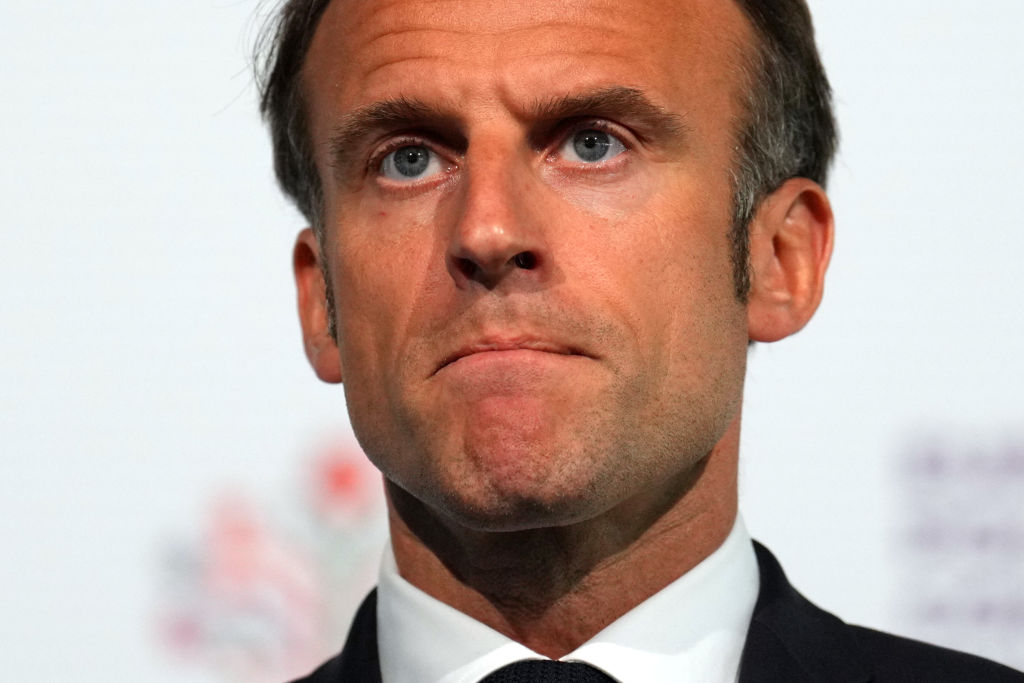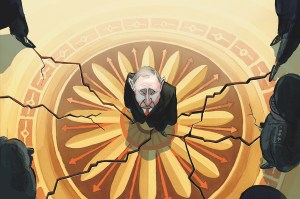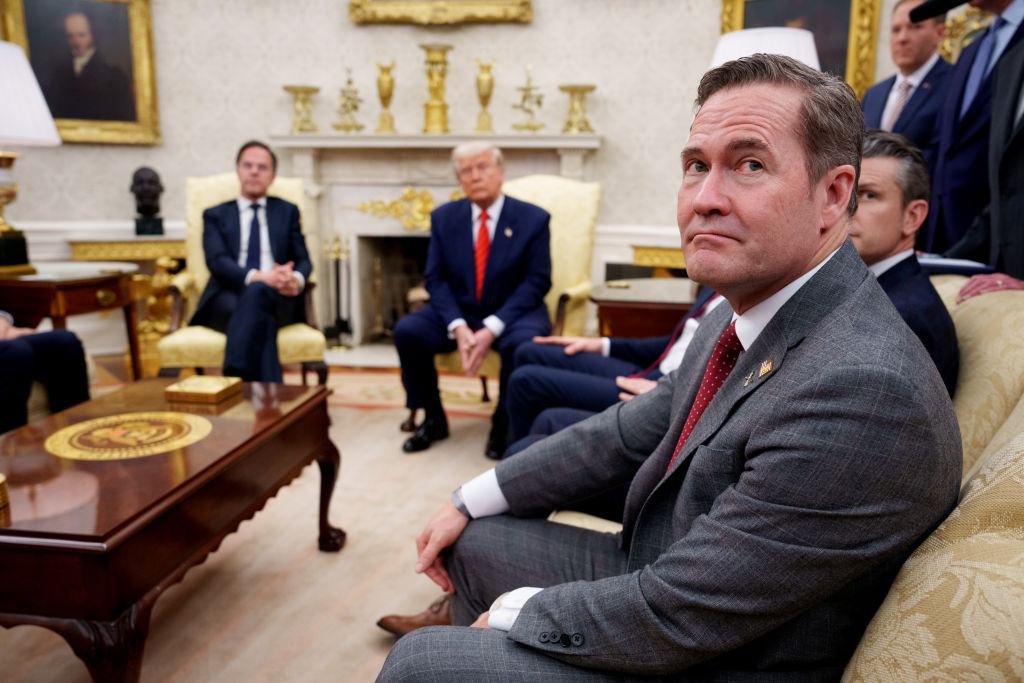When the AUKUS trilateral security pact was signed between Australia, the United States and the United Kingdom in September 2021, Emmanuel Macron was furious. France’s president took Australia’s decision to terminate France’s “contract of the century” to supply diesel-powered submarines to Canberra personally.
The French have since declared the incident officially closed, although Macron — as he is wont to do — still bears a grudge. But as AUKUS’s importance increases – and the alliance morphs into something that could shape the West’s coordinated response to regional strategic threats – it’s time for Macron to bury the hatchet.
For now, Macron’s reluctance to forgive and forget is proving problematic. Any association, or even mention of AUKUS in official circles, is eschewed, despite greater pragmatism in the French Foreign Ministry. As the foremost defense power in the EU with a serious Indo-Pacific strategy, the Elysée is cutting off its nose to spite its face, for France has an important role to play in an expanding AUKUS.
The Elysée is cutting off its nose to spite its face
Twenty months on, AUKUS has already deepened. Beyond submarines, it now covers undersea, advanced cyber and quantum technologies, artificial intelligence, electronic warfare, as well as hypersonic and counter-hypersonic missile cooperation and nuclear technology. It is not an alliance in the traditional sense of having clearly-defined strategic objectives, nor does it need to be. For at the heart of AUKUS is the “Five Eyes” partnership — the world’s oldest, deepest and most sophisticated international intelligence-sharing, “all-source” gathering and analysis organization, between the three present AUKUS founders plus Canada and New Zealand. That Anglosphere nucleus of shared values, interests and interoperability recuses any formal structure. It allows AUKUS to evolve and adapt nimbly to regional strategic requirements, without prior commitment to action and without unduly provoking China by a formal alliance.
AUKUS is also on the cusp of widening. Canada expressed a desire to join in May 2023, while New Zealand may feel out in the cold and strategically vulnerable outside the pact. How might the expansion continue? Rather as with international intelligence sharing, concentric circles radiate from the “Five Eyes” inner core (“Nine Eyes,” “Fourteen Eyes”). Whereas Ottawa would default to the inner core, one can well imagine other threatened regional nations forming the next AUKUS circle with limited links to inner core members. Japan is the most obvious. The January 11 defense treaty with the UK, its participation in the UK’s next generation stealth combat aircraft, and increasing joint military exercises point in that direction. In November 2021, influential former Japanese prime minister Shinzo Abe called for greater Japan-AUKUS cooperation. More recently, in December, Australia’s defense minister Richard Marles announced Canberra’s desire for Japan to become a member.
Further widening could include other regionally vulnerable actors, such as South Korea. The North Korean strategic threat prompted Seoul, a US treaty ally, back in 2017 to request Washington’s help in acquiring nuclear-powered submarines. This was denied in September 2020 on the grounds of nuclear non-proliferation. But one could imagine Seoul joining a greater AUKUS. While the most internationally sensitive potential member — and a bridge too far — would be Taiwan.
But there is also a home for France in a greater AUKUS after Australia in June 2022 made a half-billion dollar payment for terminating the original contract. This payout encouraged new French defense minister Sébastien Lecornu to propose rebuilding the relationship with Canberra. Since the AUKUS humiliation, Paris has tried to fill the gap by closer ties with that key Indo-Pacific player, India. But this is short-sighted. India is already tied into another exclusive regional club with Australia, Japan and the US — the Quad — albeit not a security pact, but a body that leans in the direction of AUKUS, even if India remains ambivalent about China.
Under Macron, however, France is most likely to bolster her Indo-Pacific presence and strategy through the EU, at present building its Indo-Pacific strategy. But while Macron reiterates his mantra of “EU strategic autonomy,” individual EU member states are unconvinced by his “additional way” beyond the US and China blocs, especially since the war in Ukraine. Many continue to participate in joint naval exercises with the UK and the US in the Indo-Pacific, including none other than France herself. And with Macron’s recent initiative for a continent-wide European political community, which includes Britain, the structure is there to coordinate certain aspects of the EU’s Indo-Pacific initiatives when they are shared with those of a greater AUKUS.
In 1948, Winston Churchill spoke of the “three majestic circles” defining Britain’s place in the world: the Commonwealth, the English-speaking world and a united Europe. Could the West coordinate its Indo-Pacific strategy through the “majestic circles” inherent in the geometry of a Greater AUKUS: original AUKUS, regional actors, Europe? It’s time for Macron to forgive and forget — and seize the initiative, before it’s too late.
This article was originally published on The Spectator’s UK website.

























